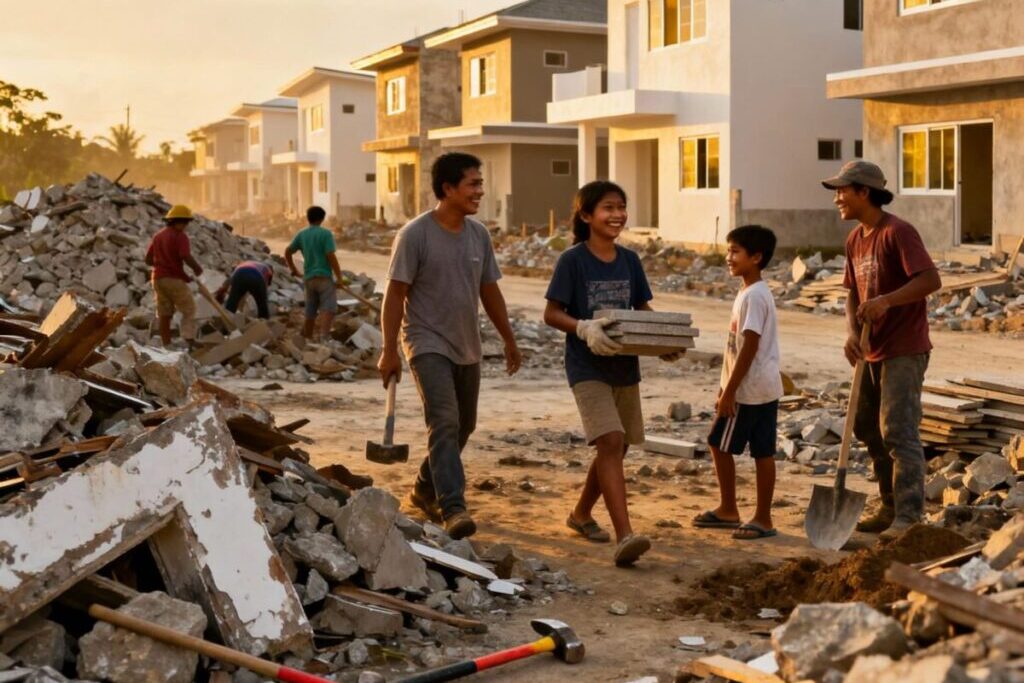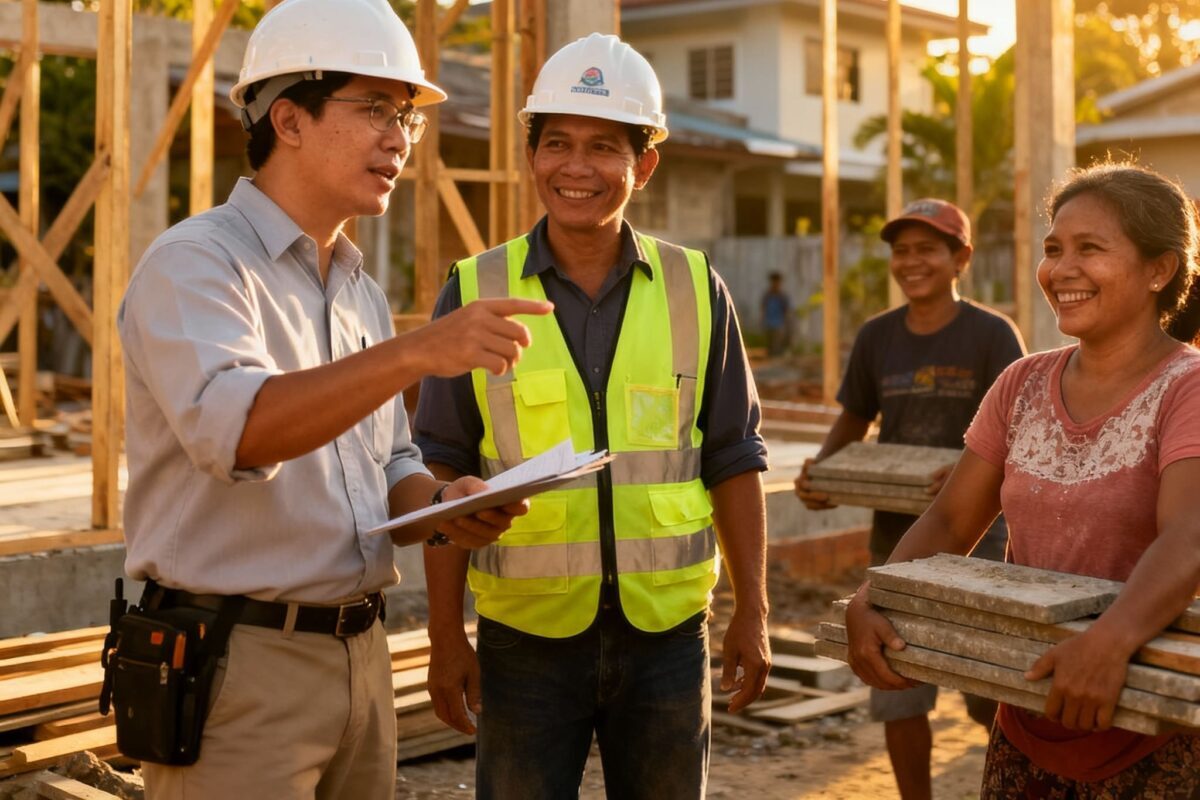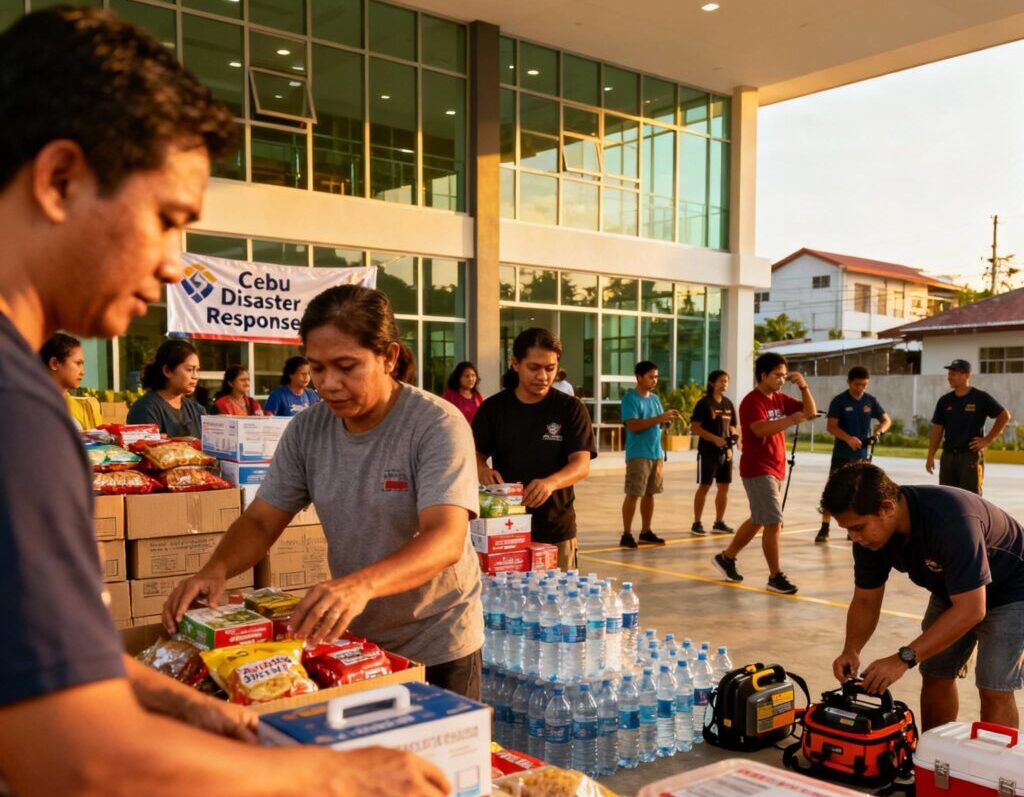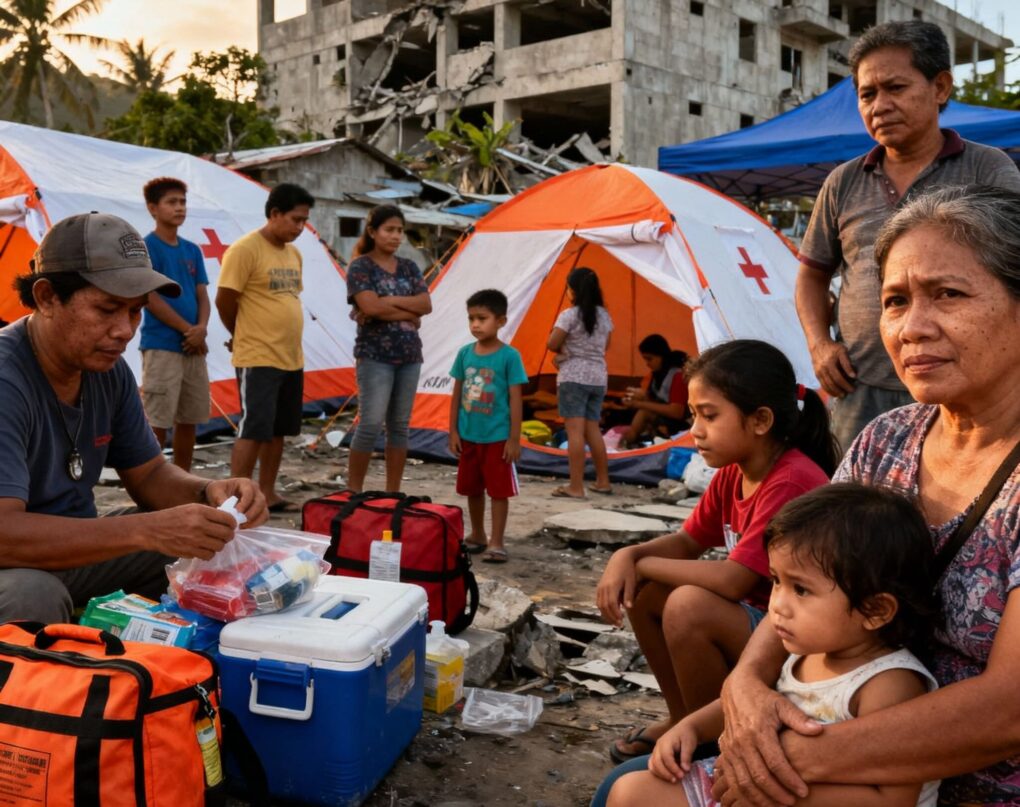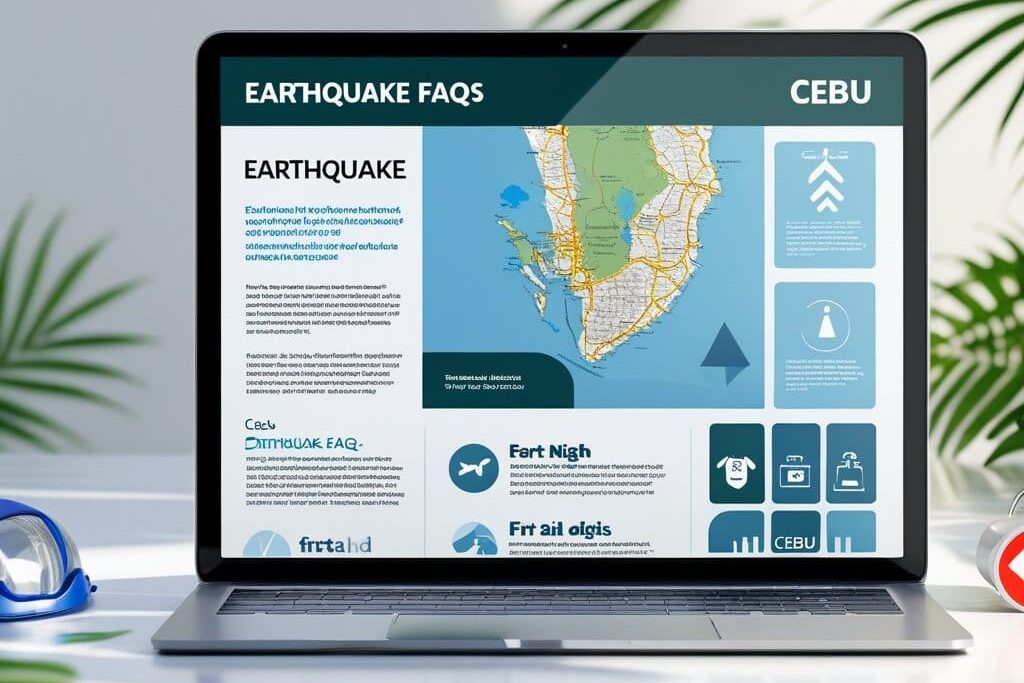Rebuilding Trust in Cebu Real Estate with Compassion: Rising Strong Amid the Tremors
Living with tremors in Cebu isn’t just about cracked walls and broken furniture. It’s about families losing sleep, neighbors sharing worries, and a city learning to trust its homes again. That is why rebuilding trust in Cebu real estate with compassion has become essential for the community’s progress.
The 2025 earthquake shook more than just buildings. It rattled people’s sense of safety. Rebuilding trust in Cebu real estate with compassion means not just building stronger houses, but caring for the people who live in them.
Efforts to restore faith in housing now mix better construction with real community support. People want to feel safe, but they also want to feel heard.
After the disaster and the aftershocks, showing compassion matters as much as engineering. That’s how Cebu can start healing both its neighborhoods and its spirit.
It takes teamwork—local leaders, builders, and families all working together—to make homes that can handle the next quake. And honestly, it takes resilience just to get up every morning and keep going when the ground keeps moving.
Key Takeaways
- Rebuilding trust in Cebu real estate with compassion means caring about both safety and people.
- Homes need smart, strong designs to stand up to future earthquakes and tremors.
- Emotional support is as important as concrete and steel for helping people cope.
Rebuilding Trust in Cebu Real Estate with Compassion After Disasters
Recent earthquakes and aftershocks have shaken Cebu’s real estate market. People want answers. Is it safe to stay? Is it smart to buy?
Restoring confidence takes more than just fixing cracks. It means being honest, listening, and making sure everyone feels included in the process.
Understanding Public Concerns and Compassionate Communication
After the magnitude 6.9 earthquake, many in Cebu started worrying about home safety and property values. It’s no surprise—aftershocks and shaky ground make anyone nervous to invest or even stay put.
Local officials and real estate agents need to speak clearly and honestly. People want updates on structural safety and zoning. They want to know what’s being inspected and what’s getting fixed.
Using simple words and a little empathy goes a long way. When people feel heard, they’re more likely to trust the process and make smart choices about property investments.
Real Estate Market Stability Amid Ongoing Aftershocks
Even with the aftershocks, rebuilding trust in Cebu real estate with compassion continues. The market is still active, though growth has slowed a little. Prices have dropped, but people are still looking for safe homes and business spaces.
Today’s buyers want clear proof that buildings follow the latest safety rules. Developers who build strong and smart structures now stand out the most.
Government officials keep reminding everyone not to build on fault lines or dangerous areas. These safety efforts help keep the market stable and protect people from future risks.
The Role of Community Support in Rebuilding Trust in Cebu Real Estate with Compassion
Community support really matters. Local groups and aid organizations help families find safe places to live after the quake.
Sharing info about government help and rebuilding resources gives homeowners some hope. Forums and neighborhood meetings let everyone speak up and share concerns.
When people come together, trust grows. It’s not just about the buildings—it’s about feeling like someone’s got your back.
For more on how communities are tackling these challenges, check out this report on Cebu’s rebuilding efforts.
Rebuilding Trust in Cebu Real Estate with Compassion: The Heart of Strong and Future-Ready Communities
Cebu gets hit by tremors a lot. Homes and public buildings need to be ready. Stronger construction and simple safety steps can save lives and money.
It’s also about keeping Cebu’s heritage alive. Old churches and houses need special care—safety upgrades that won’t erase their character.
Implementing Earthquake-Resistant Construction
Rebuilding trust in Cebu real estate with compassion also means focusing on safer, earthquake-ready buildings. These structures use flexible designs and strong materials to handle shaking. In Cebu, this includes reinforced concrete, steel supports, and base isolators that absorb movement during quakes.
Even simple choices—like using lighter roofs and well-balanced layouts—make a big difference. Builders are now encouraged to choose materials that can withstand repeated aftershocks, helping homes last longer and lowering repair costs.
Integrating Disaster Risk Reduction Measures
Disaster plans in Central Visayas include early warnings, safe evacuation routes, and regular drills. Hazard maps show where landslides or liquefaction could happen.
People who know basic safety steps can protect themselves. Raising houses in flood zones and strengthening foundations helps too. Local governments need to make sure no one builds in risky spots.
Investing in strong bridges and hospitals keeps the whole community safer.
Strengthening Heritage and Cultural Properties
Cebu’s old churches and homes need modern safety upgrades, but nobody wants to lose their unique style. Experts use base isolation and careful retrofitting to protect these treasures.
Restoration should involve the community. Locals know what matters most about their heritage, and engineers can help keep it safe. Protecting these landmarks keeps tourism strong and gives people something to be proud of.
Want to learn more about earthquake-safe buildings in the Philippines? Check out this guide on building resilience.
Rebuilding Trust in Cebu Real Estate with Compassion: Helping Communities Get Ready for Disasters
Cebu’s disaster readiness isn’t just a plan on paper. It’s people, agencies, and volunteers working together, day in and day out, to handle earthquakes and other crises.
There’s a system, but there’s also a lot of heart.
Coordinated Disaster Preparedness System
Local barangays lead Cebu’s disaster preparedness, working with the National Disaster Risk Reduction and Management Council (NDRRMC). Each barangay has plans for evacuation, emergency communication, and supplies.
PHIVOLCS sends out real-time updates and warnings. This helps everyone act fast when aftershocks hit. Regular drills keep people prepared and neighborhoods safer.
Local and National Agencies’ Involvement
Local governments partner with the NDRRMC and PHIVOLCS for both quick response and long-term recovery. The Office of Civil Defense (OCD) Region 7 brings everyone together when disaster strikes.
National agencies help with supplies, know-how, and public education. They also enforce building codes and push for disaster-resistant designs. That’s a big part of rebuilding trust in Cebu real estate with compassion.
Volunteerism and Diaspora Support
When tremors hit, Cebu’s volunteers show up fast. They hand out food, offer comfort, and clear debris. Local groups run relief drives, and even Cebuanos abroad send help.
Volunteers support families in shelters and check on the most vulnerable. Their compassion really shines, making recovery faster and more human. Diaspora support adds extra resources, speeding up reconstruction and bringing hope.
Rebuilding Trust in Cebu Real Estate with Compassion: Staying Strong Through Aftershocks and Hazards
In Cebu, the aftershocks seem endless, and typhoons keep coming. People need to be ready for both the physical dangers and the stress that these disasters cause.
Having a clear plan and a strong support system makes it easier to cope and recover.
Addressing Psychological Impacts on Residents
Aftershocks can make anyone feel nervous. It’s hard to relax when you’re always waiting for the next one.
Building resilience starts with mental health care. Simple things like deep breathing, mindfulness, and talking with neighbors can help. Community counseling and support groups also give people a safe space to share their worries and learn how to cope.
Multi-Hazard Preparedness: Typhoons, Earthquakes, and Beyond
Cebu gets hit with more than just quakes. Typhoons and floods are real threats too. Families need a plan for everything—typhoon shutters, clear evacuation routes, and emergency kits ready to go.
It’s smart to keep water, food, first aid, and flashlights on hand. Everyone should know how to turn off gas and electricity to prevent fires after a quake or storm. Drills help people react fast when it matters most.
| Hazard | Key Preparedness Steps |
|---|---|
| Aftershocks | Expect them, secure heavy items, stay alert |
| Typhoons | Reinforce windows, clear debris, prepare supplies |
| Flooding | Move to higher ground, avoid waterlogged areas |
Ensuring Continuous Emergency Support While Rebuilding Trust in Cebu Real Estate with Compassion
Quick help after disasters can save lives. Emergency teams must keep working, even when aftershocks or storms happen one after another.
They check for damage, give medical help, and restore power and water. Local governments and relief groups should share updates through radios or community alerts to stop false news and prevent panic.
Support should cover both physical safety and emotional well-being. This helps keep public trust strong, even during hard times.
Neighbors can help by sharing supplies and checking on those who need extra care.
Strongest Aftershock Update: The strongest aftershock so far hit on October 13, 2025, with a magnitude of 5.8. It caused more damage and reminded everyone why it’s so important to keep rebuilding trust in Cebu real estate with compassion.
Frequently Asked Questions
Rebuilding trust in Cebu real estate with compassion isn’t only about repairing buildings. It’s about making homes safer, giving emotional support, and helping people regain confidence in the market.
Safety, clear rules, and emotional care all matter. The strong aftershock on October 13, 2025, slowed recovery but also reminded everyone how important resilience is.
How can homeowners in Cebu ensure their homes are earthquake-resistant?
Homeowners should pick materials and construction methods that meet the latest earthquake-resistant codes. It’s smart to hire licensed engineers who can check and reinforce your home, so it stands strong during tremors.
What are the best practices for emotional recovery after earthquakes in Cebu?
Access to counseling and support groups really helps. Keeping up with daily routines and staying close to neighbors can make a big difference, too.
If trauma or fear from aftershocks becomes overwhelming, reaching out to mental health professionals is a good move. No shame in needing a little help.
Rebuilding Trust in Cebu Real Estate with Compassion: How Communities Are Regaining Confidence
Authorities and developers now focus on transparency about building safety. They share updates about inspections, reconstruction plans, and financial support programs to reassure both buyers and sellers.
What building rules are being updated to make Cebu’s structures stronger?
Cebu’s new standards set stricter rules for structural integrity. Builders now use materials designed for seismic zones and focus on strong foundations and wall reinforcements.
They also pay more attention to safe evacuation routes. It’s all about keeping people safe, not just ticking boxes.
What assistance can residents in Cebu receive after the tremors?
The government offers financial aid for rebuilding homes and provides temporary shelters. People can also get help with basic needs.
Nonprofits step in with food, water, and medical supplies for displaced families. It’s a team effort, really.
Rebuilding Trust in Cebu Real Estate with Compassion: How the Local Government Helps Keep Communities Stable After Earthquakes
The government wants to rebuild quickly, but they’re not skipping safety rules. They give permits and rewards to builders who use safe designs. This helps prevent more damage if another disaster happens.
They also ask communities to take part in planning. People can share their ideas so new projects match what they really need and keep them safer in the future.
After the strong aftershock on October 13, 2025, this work became even more important. Rebuilding trust in Cebu real estate with compassion is not just a saying—it’s now a real goal guiding every rebuilding effort.
